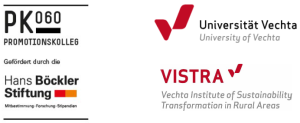Conference Registration Information: Earlybird Deadline 6/27, Student Registration Steps, and Workshops
The Early bird registration period for ESA/USSEE 2019 ends on June 27th at 5 pm EST. At this point registration increases from $390 to $450 for members, and from $195 to $205 for student members.
There is an issue with the conference registration site that is preventing the USSEE student membership option and rate from showing up. If you are a student member of USSEE who is registering for the conference, you must email registrar@esa.org to get the student rates
The conference schedule is now available.
We want to encourage everyone attending to register for the two USSEE specific conference workshops:
Building Bridges in a Full World: How to Teach Ecological Economics Across the Disciplines: Sunday August 11th 8 am-11:30 am
Synopsis: Instructors across ecological disciplines routinely engage with economic concepts in their classrooms. Neoclassical economic theory, the common basis for these engagements, presents an “empty” world where natural capital is endless, and economic growth limited only by the man-made capital available to transform, a view at odds with ecological realities. In contrast, the field of Ecological Economics (EE) acknowledges that we live in a “full” world of man-made capital and the products thereof stressing the biophysical limits of the ecosphere. Combining perspectives of the social sciences/economics and natural sciences/ecology, EE calls for transdiscplinary, not just interdisciplinary, approaches to addressing the issues we face in a full world, providing a bridge for instructors to connect economic applications to ecological concepts.
This workshop will invite educators across sustainability, ecology and economics-related disciplines to learn the core principles of ecological economics. Participants will work towards discovering and refining ways that EE can fit into their existing coursework, prompt new courses, or bring value added to disciplinary curriculua.
After overviewing core concepts and principles of EE, participants will break out to define appropriate learning objectives and develop their own educational products. A team of current EE educators will facilitate while, providing experiences, resources, and suggestions. By the end, each participant will have a product to take home for further refinement. These could range from activities to illustrate core concepts such as ecosystem services, to modules that supplement existing courses (e.g, natural resources management, conservation biology), to a syllabus for a semester-long course on EE.
Applying Agroecological Principles to Urban Food Production: Tuesday August 13th 11:30 am-1:15 pm
Synopsis: Urban food production is becoming increasingly popular all around the globe. Urban agriculture accounts for 15 percent of the total agricultural land in the world (Tefft et al., 2017). A variety of resources, including waste lands, idle lands, roof tops, grey water, and compostable wastes are available in cities. In most instances, the production occurs in small scales and with limited resources. There is a need to organize urban food production on ecological principles in order to sustain food productivity and minimize urban waste problems. The challenge that encounters urban agriculture is how to avoid adverse environmental impacts (e.g., chemical runoff, etc.) which confronts conventional agriculture.
This workshop will focus on various ecological and resource topics that play critical roles in sustaining urban agriculture: (1) ecological principles relating to food production (e.g., soil structure, organisms, integrated pest management, plant diversity), (2) organizational settings (e.g., backyard, school and community gardens); (3) direct consumer marketing); and (4) urban food awareness. The workshop includes presentations on each topic to stimulate discussions. Participants will then break into groups, with each one being assigned the role of certain production entity (e.g., school garden, community garden, farmers’ market, food forager, etc.). The groups will develop charrettes to organize their production based on agrocological principles and towards achieving food security. Participants will also develop vision and mission statements, identify urban resources, and develop organizational strategies. The workshop will thus connect researchers and practitioners and help advance the application of ecological and economic principles to food production.
If you have any questions about the conference schedule or registration, please email us at ussee2013@gmail.com.



